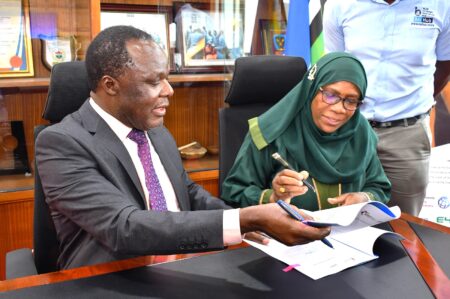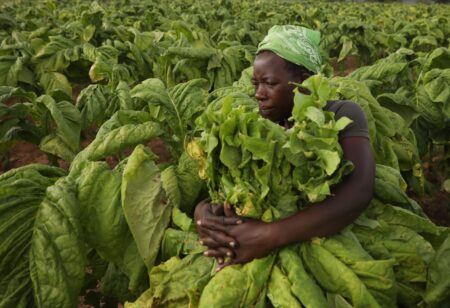Since the September 1995 United Nations’ Fourth World Conference on Women, one would think that the world would have achieved gender parity in all areas and sectors.
However, while there have been important gains over the years, there are still areas that need more work and revised strategies to reduce the gap and meet the target.
Following the world largest global gathering on gender equality in Beijing, China, 25 years ago, member states agreed that the meeting would be a basis for “comprehensive and transformative agenda for gender equality and the empowerment of women and girls.”
A recent report: Gender Equality: Women’s Rights in Review 25 years after Beijing aimed at taking stock of progress has concluded that the implementation has flopped short of the initial potential.
The review by the United Nations Women (UN Women), notes that although the last 25 years have recorded growth in some areas to make women’s and girl’s lives better, there have been bottlenecks that have crippled the progress leading to “damaging reversals of hard-won advances in women’s rights and the broader development agenda.”
The report reads: “Poverty, discrimination and violence are still strongly present in the lives of women and girls. Under-representation in power and decision-making is still the norm.”
“Only half is an equal share, and only equal is enough,” the report observes in reference to what is becoming the norm—women representation at the tables of power (in parliament and managerial positions) being just one quarter.
Additionally, women-led businesses are still lagging behind compared to those run by their male counterparts. With the on-going novel COVID-19 pandemic, more female-led than male-led businesses are on the verge of closure. This is according to a survey by ImpactHER, a non-profit organization that empowers women entrepreneurs in Africa by bridging the gender business financing gap.
Also Read: East African Agribusiness SMEs to receive $1m
Business women in post COVID-19 era
The brief concludes that women businesses are more vulnerable to closure due to the fact that women have limited access to finance, changes in consumer behaviour and the increase in caregiving activities at home resulting from the extended lockdowns. The survey which aimed at identifying the impact of COVID-19 on businesses, worked with over 1,300 women-owned small and medium-sized enterprises (SMEs) in 30 African nations.
Speaking to The Exchange, Mary Makena, an entrepreneur based in Nairobi dealing in natural hair products observed that in addition to movement restrictions spelt out by the local government which have crippled her delivery plans, she has been forced to abandon her business and concentrate on taking care of the family.
“With family members, especially children who need constant care, at home every day, I find it difficult to spare time to deliver the products as effectively as I did before the lockdown,” Mary says adding that although there is ease in movement now, many people have reduced cash flow, leading to low sales as people are trying to salvage and redirect every coin to the purchase of food and pay other essential bills.
Mary’s experience corresponds with the findings from the ImpactHER survey which found that 80 percent of the respondents had to temporarily shut down their businesses. Those “that are still fully or partially operating, 41 percent reported that they had significantly reduced the number of work hours, 34% reported that they laid off workers, and 25% reported that they had to reduce their employees”.
Also Read: AfDB calls on governments to lower costs of starting up businesses in Africa
Coding for Employment
In addition to the current global health threat, conflict, humanitarian and environmental crises continue to push down efforts to bring gender parity.
One of the major reasons why women-led businesses are struggling is inadequate or lack of access to technology. An African Development Bank (AfDB) brief dubbed Transformative policy solutions to support women-led businesses in Africa in a post Covid-19 world indicates that sub-Saharan African women are less likely to be online (about 45 percent less) than men. This leads to reduced participation in e-commerce among female business owners. Businesses that are technologically connected are able to survive in the COVID-19 and possibly, the post COVID-19 era.
To tackle these and many other challenges initiatives such as the AfDB’s Coding for Employment program is working to provide African women and youth with “access to digital tools and equip them with the ICT, entrepreneurship and soft skills training required to compete in a digital economy.”
Since 2018, the AfDB program in partnership with Microsoft has trained about 2000 youth, 46 percent of the trainees being women.
Relaxation of loan terms
More often than not, bank loans come with collateral requirements and high interest rates which further keep women away from accessing finances to boost their ventures.
Due to underlying gender-specific barriers such as lack of access to land and property, women are not able to raise the collateral needed to access loans. AfDB recommends a change in what can be considered as collateral such as the business assets and other financial alternatives such as guarantees.
Also Read: IFC new program to boost women’s employment in Egypt
Increase the number of women fund managers
The AfDB report observes that women fund managers are “almost twice more likely to invest in female entrepreneurs than their male peers”. Thus, by empowering and supporting more women to manage funds, is another sure way to bridge the financing gap that already exists for women.
In addition to these strategies that can be game changers for women in business, as countries adjust to the recovery of local economies post-COVID, women-led businesses should be well positioned to benefit from education, information and structural development policies that will push such businesses forward.
Moreover, there is a need to review the “… unequal distribution of unpaid care between men and women, and the large number of women-led businesses which still operate in the informal economy across Africa,” the AfDB report reads.










